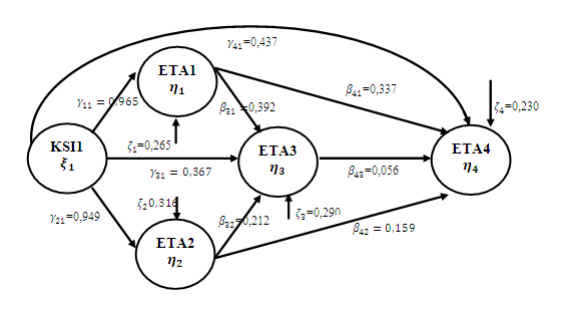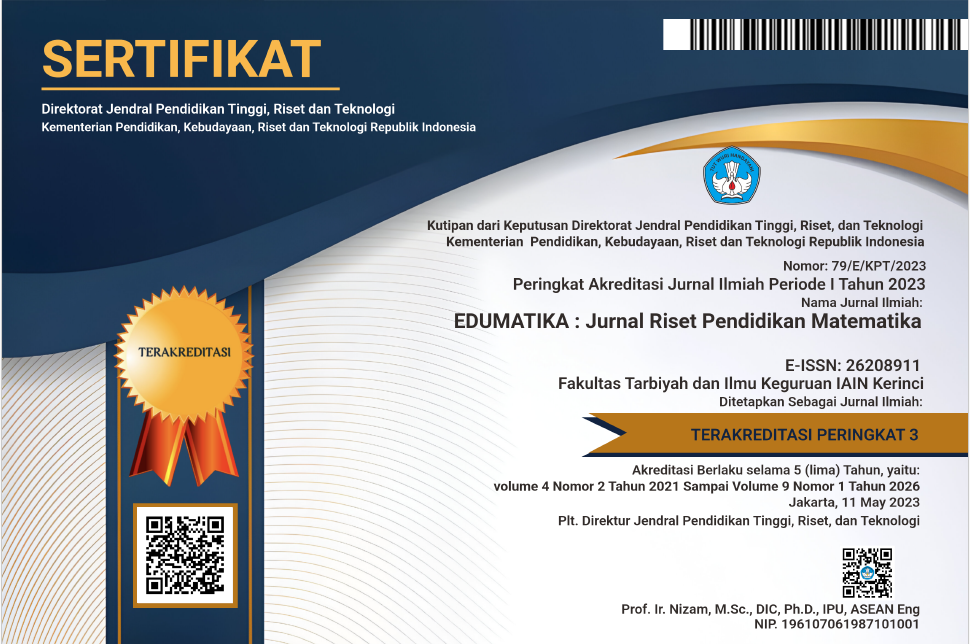The Relationship among Self-Efficacy, Mathematical Concepts Understanding, Creative Thinking Skills, Mathematical Problem-Solving Skills, and Mathematics Learning Outcomes
Abstract
The proficiency of students in mathematical problem-solving skills is believed to be shaped by factors such as mathematical concepts understanding, creative thinking skills, and self-efficacy. This research endeavors to investigate the interplay among self-efficacy, mathematical concepts understanding, creative thinking skills, problem-solving skills, and mathematics learning outcomes. Employing a survey approach, the study encompasses all ninth-grade students in Central Bengkulu, Bengkulu, Indonesia, with a sample of 100 students selected through proportional stratified random sampling. Data collection involves Likert scale instruments for self-efficacy, along with tests for mathematical concepts understanding, creative thinking skills, and problem-solving skills. Path analysis techniques are applied for data analysis. The findings of the research indicate that mathematical concepts understanding, creative thinking skills, and problem-solving skills collectively exert a positive influence on mathematics learning outcomes. Additionally, it is demonstrated that self-efficacy, understanding mathematical concepts, and creative thinking skills collectively contribute positively to problem-solving skills. Furthermore, the research reveals a direct positive influence of self-efficacy on both mathematical concepts understanding and creative thinking skills.
Downloads

Copyright (c) 2023 Khathibul Umam Zaid Nugroho, Addy Izwanto, Wahyu Widada, Norma Alias, Abdurrobbil Falaq Dwi Anggoro, Dewi Herawaty, Rahmat Jumri, Shadaqnas Dewarif Tri Anggoro

This work is licensed under a Creative Commons Attribution 4.0 International License.














